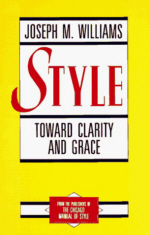I just wrote this sentence on my personal blog: Is it the task of the historian to tell us what we want to hear, to devote themselves to making us feel good? You see the problem, don’t you? I could have rewritten: 1. Is it the task of historians to tell us what we want to hear, to devote themselves to making us feel good? Or I could have written: 2. Is it the task of the historian to tell us what we want to hear, to devote him/herself to making us feel good? The second one I find a touch abominable.
It is amazing how people still fuss over this, even though
Singular “their” etc., was an accepted part of the English language before the 18th-century grammarians started making arbitrary judgements as to what is “good English” and “bad English”, based on a kind of pseudo-“logic” deduced from the Latin language, that has nothing whatever to do with English.”
See Jane Austen and other famous authors violate what everyone learned in their English class and Singular “they”. So I let my sentence stand, though some would argue pluralising the sentence (1 above) would have been a better choice.
I am a deliberate practitioner of inclusive language, but not an extreme practitioner. I have seen cases which I regard as extreme. It is a remarkably contentious issue for some; I notice the Wikipedia entry Gender-neutral language in English is marked “The neutrality of this article is disputed”!
“Anyone who had a heart and knew their English would accept a bound singular ‘they’.” — Geoff Pullum, co-author with Rodney Huddleston of The Cambridge Grammar of the English Language.
“All this evidence from different quarters of the English-speaking world shows that singular use of they/them/their after indefinites is now well established in writing. . . . Language historians would note that the trend towards using they for both plural and singular is exactly what happened with you some centuries ago. . . . The trend is probably ‘irreversible’.” ( Pam Peters, The Cambridge Guide to English Usage [Cambridge: University Press, 2004], p. 538). — My choice as best current usage reference.
“It is likely that people will continue to choose from the existing variants rather than adopt a new pronoun and that they will increasingly become acceptable as the generic singular even in formal style” (Sidney Greenbaum, The Oxford English Grammar [Oxford: University Press, 1996], 20).
Last two quotations from “Singular” they in Modern English Stylebooks on a site devoted to Bible translation.







You must be logged in to post a comment.